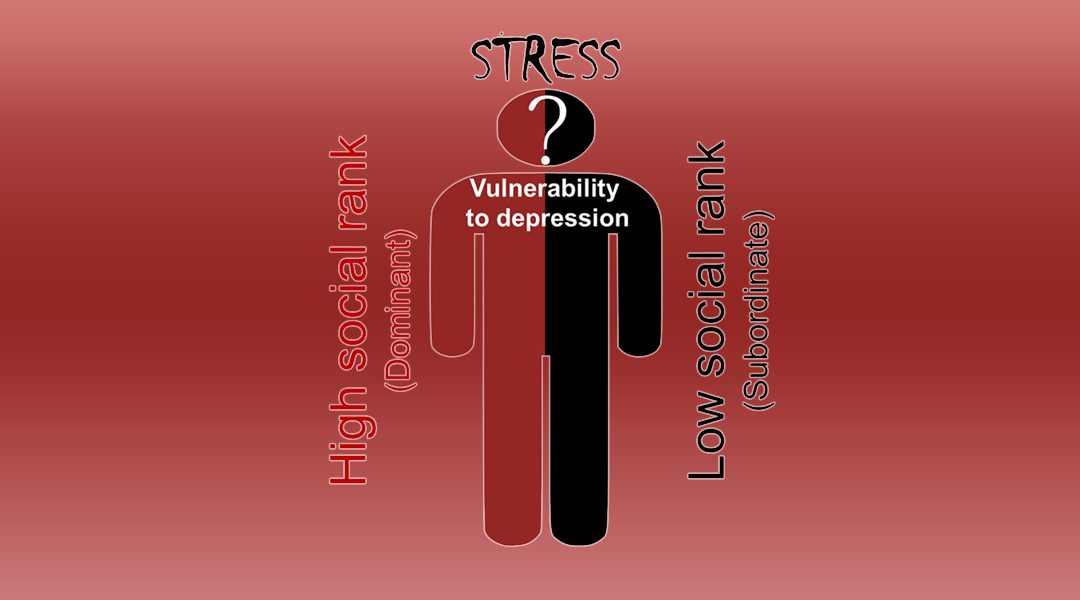It is well known that stress is detrimental for one’s health, and too much stress can even lead to depression. However, the factors making one individual more susceptible or resilient to this stress-induced depression are not yet fully understood. In their review published in BioEssays, Thomas Larrieu and Carmen Sandi discuss and analyze studies performed in rodents with a particular focus on whether social rank is a predictive risk factor for stress-induced depression.
Overall, predisposition to stress is influenced by many factors, such as early adversity and genetic factors. Social rank has recently emerged as an additional factor to be taken into account. Intuitively, one might think that dominant individuals are less at risk of developing stress-induced depression. Interestingly, though, it is the dominant individuals who have been shown to be the more vulnerable ones.
In their review, the authors briefly explain how different rodent protocols are executed to study chronic social defeat stress. In one such experiment, an experimental intruder mouse is physically defeated by an aggressive resident mouse for 5-10 minutes daily and then housed – with sensory contact only – with the aggressor for the rest of the day. This protocol is repeated for ten consecutive days and subsequently the behavior of the intruder mouse is analyzed. As a result, four different behavioral categories can be defined as shown in the figure below.

But why do dominant individuals seem to be more prone to develop stress-induced depression? Larrieu and Sandi question whether a specific social status (i.e. dominance or subordination) is indeed an appropriate predictor. They point out that the loss of social rank and resources might play a greater role than social rank per se. This might explain why dominant individuals are at higher risk when confronted with chronic situations implying the loss of rank and resources.
Finally, the authors also discuss several outstanding questions and issues that have been voiced with regards to the chronic social defeat stress model shown above. Future studies are also needed to get a better understanding of the neurobiological mechanisms underlying susceptibility or resilience to stress-induced depression.

















